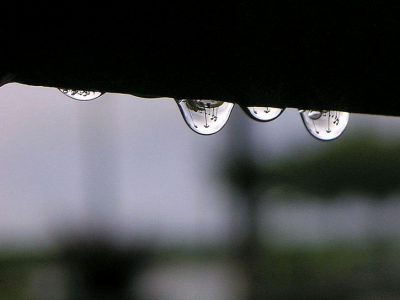By
Wally Swist
Imminence
in memory of Jerzy Kosinksi
It had rained or it was about to rain,
as you stood in the threshold of the doorway
of the bookstore, a small entourage
surrounding you. I remember a woman taller
than you, a fur wrap around her shoulders;
and others, a man in a trench coat with
salt and pepper hair. You looked powerful
but tentative, at once. I recognized
the darkness in your face from the pages
of The Painted Bird, which I had devoured,
aghast by the tale of your survival; then
read again, exhilarated as I might have
taken the same roller coaster ride,
by it having frightened me even more than
it did the first time, just for the sake of
the thrill of being alive. You looked up at
us on the raised platform of the front desk
as you might be squinting into a light
that was brighter than it is comfortable
to see into, and I asked you
questions about your writing, how you
were, if I could help you find anything,
could you please come on in;
and what I saw there in your visage were
the atrocities that the war tattooed onto you,
although you did escape the humiliation
of the Nazis branding numbers on one
of your wrists. The child in you never fully
having escaped hanging from a ceiling lamp,
or a chandelier, while a German Sheppard
placed in the room with you, leapt and
snapped at whatever appendage hung low
enough when you tired; and the child
you were did not escape the shadows that
accompanied your fierce sense of freedom
while running through the forest because
all the shadows kept pace with you—
as fast as you could run, you could not outrun
the shadows and the accrued darkness
of what had occurred to you. Still, I was
shocked when I read, some years later, that
you had taken your own life, that it was
impossible for you to have outdistanced
the war and your memories of it,
that it haunted you, that it was imminent
in the gravity of the creases of the wrinkles
in your face that reminded me
it had stormed or it was about to storm.



Another superb poem by Wally, whom one expects to be writing about his close observations of nature. Here he turns to close observation of a man whose traumas reveal themselves in his bearing. A constant writer, Wally is clearly a poet who pays attention.